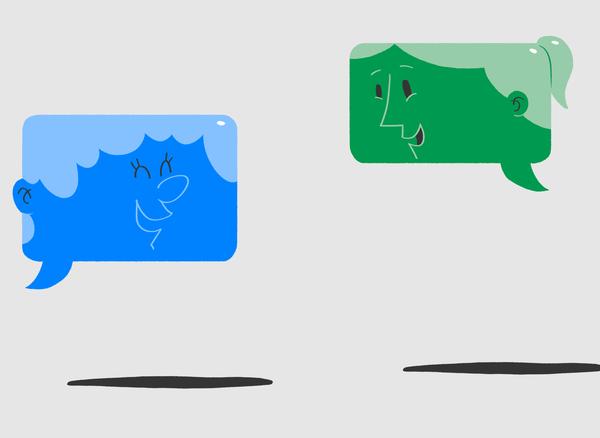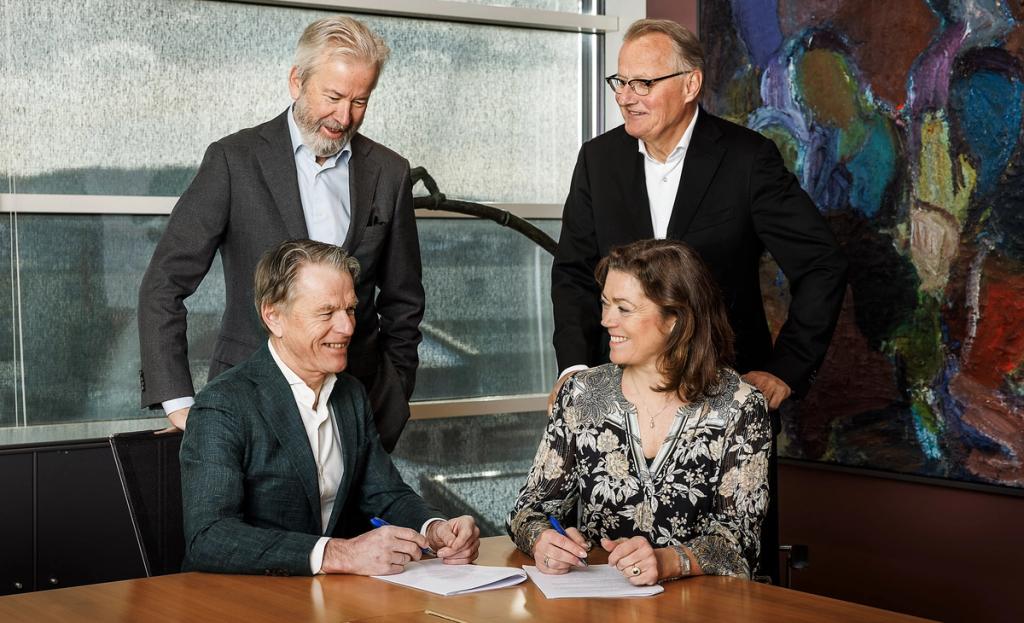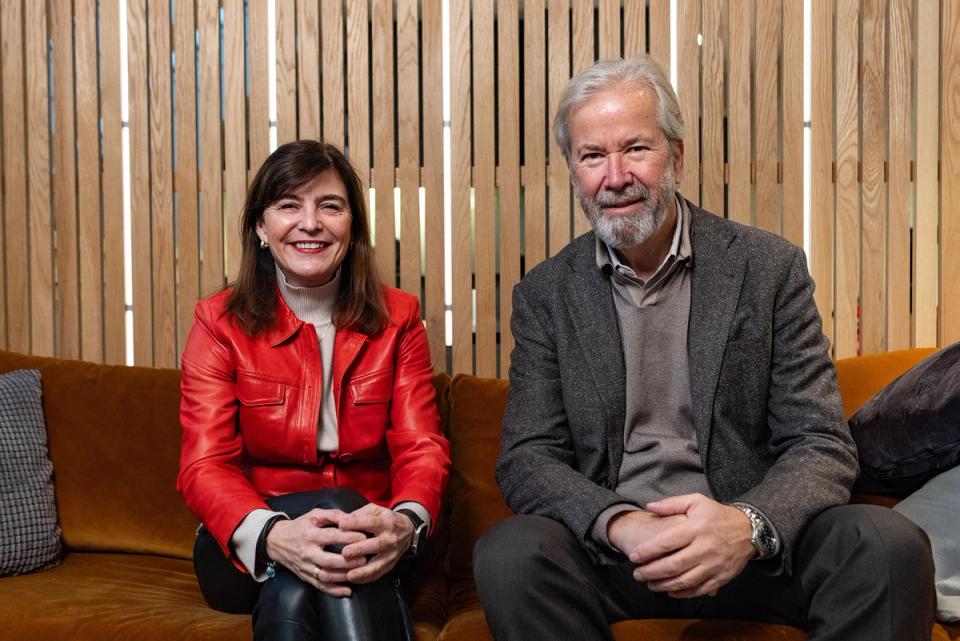27. mai 2015
Welcome to the intimacy era

The next generation of mobile marketplaces. In a time when bringing your smart phone to bed with you is normal, […]
The next generation of mobile marketplaces.
In a time when bringing your smart phone to bed with you is normal, wearable technology and the so-called Internet of things is profoundly changing our relationship with technology. Today’s mobile marketplaces are windows that allow us a sneak peek into our future life with technology.
It is a bit like being at the zoo, looking at some old giant turtle, or taking the kids to a Middle Ages theme park. I am talking about Blackberry users. They are still around, like old turtles. Blackberry users always look like serious businesspeople. You can see them on planes and trains, checking their funny little device into which some wizard has managed to squeeze a miniature computer keyboard.
Despite prominent users such as Barack Obama, Angela Merkel and Erik Schmidt, the Blackberry is as good as dead. None of us wants to share its fate. From its peak in 2008, Blackberry’s market cap has shrunk by 93%.
In the same period, Apple’s stock has surged by 360%. Google’s market cap has soared from $111 million to $361 million. Blackberry shrunk a desktop computer to pocketsize, sat back and watched its innovation surge, just to see it falter and slide to 35 million users worldwide. IPhone and Android smartphones entered the market with a native approach. Today they are reaping the rewards of 2 billion users.
I do not mean to offend Blackberry users. It is a curable condition, after all. Nevertheless, we can learn from the Blackberry story: If businesspeople are the only users of your product, you are in trouble. Especially if your product is not specifically tailored to the enterprise market or some other niche. This is because businesspeople are not trendsetters.
The latest concept on the Blackberry path to oblivion is email. Can you remember how fun it was to be an early adopter, and then watch as the rest of the world caught up? And how Microsoft coughed up an impressive 400 million dollars to purchase Hotmail? By the new millennium, email had become universal, as natural and indispensable as water. Then came Whatsapp, the messaging service.
Have you tried to get hold of non-businesspeople lately? I still use email to send my kids – now in their teens and twenties – longer texts and attachments. Then I message them on Whatsapp or Facebook Messenger to let them know they have mail. With some luck, they will read it within 3 or 4 days. For speed and accessibility, email is no longer the standard solution.
Messaging has been around for a very long time. Can you remember ICQ on the PC? Messaging came of age with mobile. It became nimble, always on, and free as air. For now, messaging has taken over the world. Today, nobody doubts that Whatsapp was worth the 19 billion dollars Facebook paid for the company a year and a half ago. Nobody questions Snapchat’s decision not to sell at 3.6 billion dollars. Everyone realizes that Wechat is the real crown jewel of Tencent.
Mobile’s most important quality is not its mobility, but rather its intimacy.
PIERRE-FRANÇOIS MARTEAU
Messaging is the glue of the digital world. Some call it its operating system. It is universal and fast, the quintessential personal and always logged-on service. It is a platform for a broad range services, whether it is negotiating M&A deals, expressing condolences, or sharing dodgy pictures.
Now, the messaging trend is entering mobile marketplaces. They obey simple, age-old rules: match offer with demand, connect people around tradable items, maintain an environment of trust. All of which, nowadays, is best achieved in the always logged-in environment of mobile devices, with messaging as its lifeblood.
Mobile is not just about technology. It is also about what happens when technology and user habits begin to merge: Always with me, always switched on, and so intuitive it becomes an extension of myself. Thus, what affects our business is not so much technology itself, but rather how it changes users’ behavior and expectations.
Immediacy: We clocked it. It takes 30 seconds to insert an ad on Shpock, a mobile marketplace that Schibsted has invested in. On most “traditional” classifieds sites, this takes 4 minutes. Picture focus: We measured it. Shpock uses one hundred percent of screen space on its listing page for pictures. Other established classifieds services show approximately 30% pictures.
Ads: We counted them. Shpock’s ad growth is impressive. The company has a backbone of well thought-through user accounts and a solid messaging system, and is the first classifieds marketplace to truly grasp and unleash the power of mobile.
Mobile’s most important quality is not its mobility, but rather its intimacy. In the early years, one got away with squeezing a web-based classifieds site into a mobile phone, in the same way Blackberry got away with shrinking the keyboard.
Today, user expectations have turned this upside down. It used to be a ”pull” world: Users knew what they wanted and searched for it. It has now become a “push” world: Users expect a curated feed, pushed at them for their enjoyment and convenience.
More than ever, users turn to marketplaces for pure entertainment. Mobile has driven serendipitous usage and marketplaces to new highs in traffic and content production.
When the leading French classifieds marketplace Leboncoin released its first mobile app, the customer service began to receive a new kind of complaint: “You have destroyed my sex life. My husband was always an addict, but now he is taking Leboncoin to bed”. Intimacy knows no boundaries.
Mobile is creating new marketplace constellations. This is especially true for younger users. 20 years ago, the Swedish classifieds service Blocket brought snowmobiles into its permanent shopping window. Today, mobile marketplaces are awash with all new accessories, fashion clothing, Play Station games, etc. Not to mention more abstract goods and services for which there were no marketplaces before the mobile, such as the taxi service Uber.
Mobile is about intimacy, and being the constant companion of the user. Wearables, with the Apple Watch as the frontrunner, are opening an era of even more intimacy. How will this further affect the marketplace? What about the Internet of Things and artificial intelligence? No one knows for sure, and only one thing is clear: we had better brace for more change ahead.
Pierre-François Marteau is Senior Vice President at Schibsted Classified Media.



